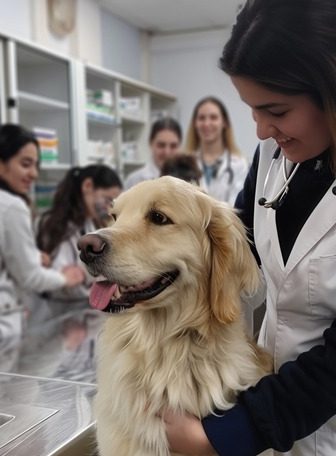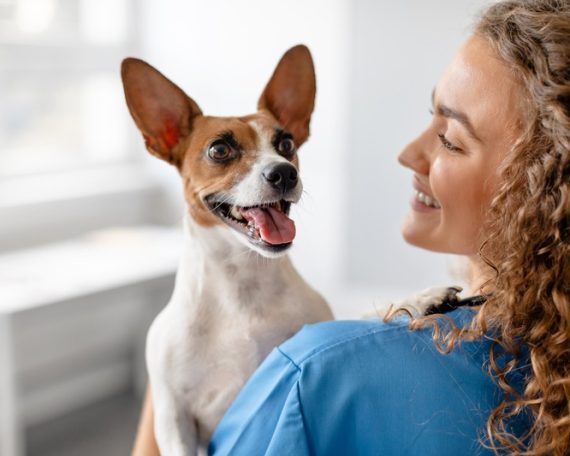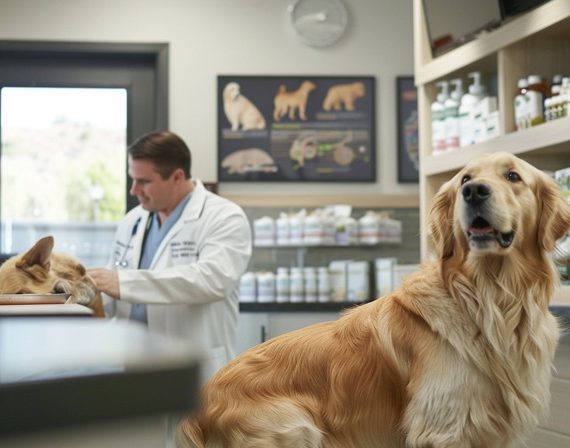Why Is Regular Vet Care Crucial for Your Pet’s Health?
Regular veterinary care is a cornerstone in ensuring your beloved pets’ overall well-being and longevity. Pets, like humans, require consistent health check-ups to detect and prevent illnesses before they become serious. Regular visits to the vet not only encompass routine physical examinations but also provide opportunities for vaccinations, dental care, nutritional guidance, and behavioral assessments.
As pet owners, we often overlook subtle signs of discomfort or illness in our pets. Veterinary professionals are trained to identify these signs early, safeguarding our pets from potential health risks.
1. Preventive Care
Regular and preventive check-ups are the cornerstones of preventive medicine for younger pets. During these visits, a vet for kittens in Benton, AR, can assess your pet’s overall health, administer vaccinations, and discuss preventive measures such as parasite control and dental care. By addressing potential health issues early on, veterinarians can help prevent more serious conditions from developing, ultimately leading to a longer and healthier life for your pet.
2. Early Detection of Health Issues
Pets are adept at masking signs of illness or discomfort, making it challenging for owners to identify problems early. Regular veterinary visits enable veterinarians to conduct comprehensive physical examinations and screen for underlying health issues that may not be apparent to pet owners. Early detection allows for prompt intervention and treatment, which can significantly improve outcomes and prevent the progression of diseases.
3. Vaccinations
Vaccinations are critical for protecting pets against contagious and potentially life-threatening diseases. During veterinary visits, veterinarians can administer necessary vaccinations based on your pet’s lifestyle, risk factors, and local disease prevalence. Keeping vaccinations up-to-date not only safeguards your pet’s health but also contributes to the overall well-being of the pet population by preventing the spread of infectious diseases.
4. Dental Health
Dental problems are common in pets and can have far-reaching consequences if left untreated. Regular dental examinations and cleanings performed by veterinarians help maintain oral health and prevent dental diseases, such as periodontal disease and tooth decay. Good dental hygiene ensures your pet’s comfort and reduces the risk of secondary health issues, including heart and kidney disease.
5. Nutritional Guidance
Proper nutrition is fundamental to your pet’s overall health and well-being. Veterinarians can offer personalized nutritional guidance based on your pet’s age, breed, size, and health status. During veterinary visits, veterinarians from reputable facilities like Saline County Animal Clinic can evaluate your pet’s dietary needs, recommend appropriate diets, and address any nutrition-related concerns. A balanced diet tailored to your pet’s requirements supports optimal growth, energy levels, and immune function.
6. Behavioral Assessment
Changes in behavior can often indicate underlying health issues or environmental stressors. During veterinary visits, veterinarians assess your pet’s behavior, looking for signs of anxiety, aggression, or other behavioral concerns. Early identification of behavioral issues allows veterinarians to offer guidance on behavior modification techniques, environmental enrichment strategies, or referrals to veterinary behaviorists, ultimately improving your pet’s well-being and strengthening the bond between you and your pet.
7. Senior Pet Care
As pets age, they require specialized care to address age-related health issues and maintain their quality of life. Regular veterinary check-ups become increasingly crucial for senior pets to monitor for conditions such as arthritis, cognitive dysfunction, and organ dysfunction. Veterinarians can perform age-appropriate screenings, adjust treatment plans, and provide supportive care to help senior pets remain comfortable and active as they age.
8. Building Trust
Regular veterinary visits help foster a positive relationship between pets and their healthcare providers. By exposing pets to the clinic environment and veterinary team routinely, owners can help alleviate fear and anxiety associated with veterinary visits. Building trust with your pet’s veterinarian ensures your pet receives the care and attention needed to thrive.
9. Routine Laboratory Testing
Regular veterinary care often involves routine laboratory testing, such as bloodwork and urinalysis, to assess your pet’s internal organ function, detect early signs of illness, and monitor ongoing health conditions. Their vet diagnostic services provide valuable insights into your pet’s overall health status and allow veterinarians to tailor treatment plans accordingly.
10. Education and Guidance
Veterinarians educate pet owners about proper pet care, including nutrition, exercise, grooming, and preventive health measures. During veterinary visits, veterinarians offer personalized guidance and recommendations to help pet owners make informed decisions about their pet’s health and well-being. By empowering pet owners with knowledge and resources, veterinarians support the long-term health and happiness of pets.
Final Thoughts
Regular vet care is indispensable for proactively managing your pet’s health. It plays a critical role in early detection and prevention of diseases, ensuring timely intervention and treatment. Such preventive measures can significantly enhance your pet’s quality of life, prolonging their lifespan and reducing medical costs in the long run. Regular veterinary visits also provide a platform for pet owners to seek professional advice on various aspects of pet care, from dietary needs to behavioral issues.










